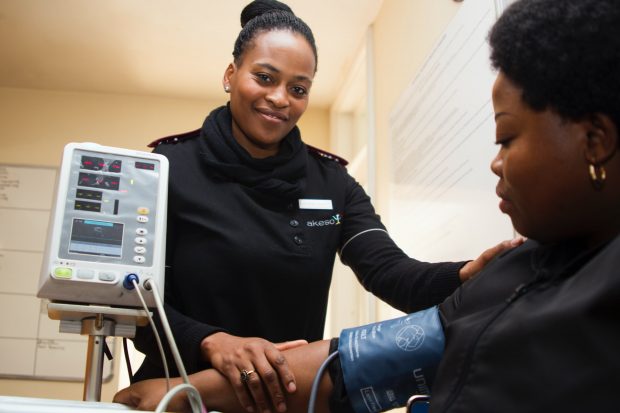According to the US Bureau of Labor Statistics, there will be approximately 194,500 average annual job openings for registered nurses from 2020 to 2030, with an estimated 9% growth in employment. Longevity Live Paid Content.
Registered nurses, who make up 4.3 million of the nation’s workforce, are essential in providing healthcare services, driving the evolution of local and national healthcare systems, addressing health disparities, and enhancing the overall health of the nation.
Caring for others is a noble profession, but there are many different ways to become a nurse. The path that’s right for you depends on your goals and preferences. Do you want to earn a Bachelor of Science in Nursing degree or obtain an Associate Degree in Nursing instead? Are you interested in working hands-on with patients? Or would you prefer more classroom instruction so that you can learn more theory before entering the workforce?
In this guide, we’ll describe each of these programs so that you can figure out which one is best for you.
Traditional four-year Bachelor of Science in Nursing (BSN) program
If you’re interested in pursuing a traditional BSN program, it’s important to know that these programs are typically four years and full-time. NurseJournal notes that private schools charge more than double for BSN programs compared to public schools.
During the 2020-21 academic year, students at private institutions paid an average of $32,830 in tuition fees alone, and with room and board expenses included, the total cost escalated to $43,310.
Attending a public school for a four-year BSN program could cost anywhere between $40,000 to $80,000, while enrolling in a private school could cost between $60,000 to $120,000. Out-of-state students may incur significantly higher expenses.
While there are many benefits to attending a traditional four-year Bachelor’s degree nursing school, including exposure to diverse populations of students with different backgrounds, it may not be right for everyone. If you don’t have time or money during the weekdays while working another job, then this might not be worth pursuing while working another job during the weekdays.

Photo by Hush Naidoo on Unsplash
Accelerated nursing degree program
Accelerated nursing degree programs are intensive and feature fast-paced curricula. As such, students are able to earn their bachelor’s degree in as little as 16 months. Geared towards students with bachelor’s degrees in another field, these programs are ideal for individuals who aspire to become nurses without investing four years in college.
The primary benefit of this program is its efficiency, allowing students to obtain their bachelor’s degree at a faster pace than traditional students while maintaining the same level of education.
Online accelerated nursing degrees from accredited universities like Rockhurst University cater to individuals who cannot attend traditional schools or who have other responsibilities such as a job or family. These universities provide students with equivalent education to that of traditional programs. Most employers and licensing boards consider them to have the same value as traditional programs.
Online nursing students can study at their own pace without worrying about registering for campus classes each semester.
Associate Degree in Nursing (ADN) Program
If you’re looking for a shorter nursing program, an associate degree in nursing (ADN) might be a good fit for you. ADN programs usually take two years to complete, and community colleges nationwide offer them. They often cost less than BSN programs since they require fewer credits and don’t include any graduate-level courses.
ADN students spend most of their time completing hands-on clinical alongside working RNs, and sometimes even physicians, in hospitals or other healthcare settings such as clinics or private practices. This provides them with valuable experience before transitioning into the workforce as registered nurses (RNs).
Licensed Practical Nurse (LPN) Program
LPN programs are shorter than BSN programs. If you’re looking for a quick way to get into the field, an LPN program may be your best bet. According to Practical Nursing.org, the typical cost of tuition for LPN programs is around $10,000 to $15,000. However, prices may vary depending on the program, with some charging as low as $4,000 to $5,000 and others costing as much as $30,000 or more.
LPN programs are less expensive than BSN programs. If money is tight, but you still want to pursue nursing as a career path, or if you have already completed some college courses but don’t have enough credits. An LPN program might offer precisely what you need. An affordable way into the profession without going deeper into debt than necessary before entering it.
LPNs can also do everything RNs do except administer drugs intravenously or perform surgery. They work mostly in hospitals or clinics, providing direct patient care under registered nurses (RNs) supervision.
Diploma Programs
Diploma programs are another option for students who want to become nurses. These programs are typically hospital-based and provide hands-on training in nursing skills. However, they’re less common than they used to be.
You’ll typically complete your diploma program within two years (rather than four). This is because there is less time spent on theory and classroom learning. Instead, you’ll spend most of your time working with patients under the supervision of experienced nurses.
Diploma programs are a good choice for people who have their heart set on working in a specific field (e.g., paediatrics or geriatrics). They are also good options for those who want to enter the workforce quickly after graduation without having to take additional courses post-diploma.
Conclusion
The nursing field is growing in demand, and the number of people entering it is increasing every year. With so many options available, choosing which path is right for you can seem overwhelming. But keep in mind that there are many paths to becoming a nurse. And they all lead to a rewarding career.



![women [longevity live]](https://longevitylive.com/wp-content/uploads/2020/01/photo-of-women-walking-down-the-street-1116984-100x100.jpg)










